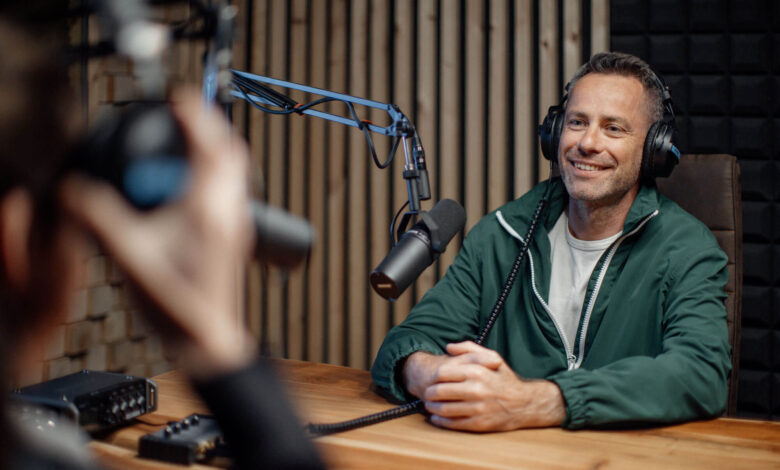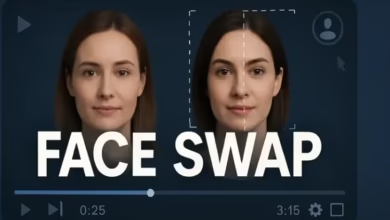Is Starting a Podcast in 2025 Worth It?

Every January, there’s a fresh wave of new podcasters hitting record for the first time. Some shows grow into loyal communities, others fade after a few episodes. If you’re thinking about starting a podcast in 2025, the big questions are: Will it be worth the time?andWhat will it really take to make it work?
Let’s dig into the real-world costs, the challenge of landing sponsors, and whether the effort pays off in today’s podcasting landscape.
The Real Cost of Starting a Podcast
A lot of people believe that podcasting is simplelike one, two, three.You can go and buy a mic, record in the bedroom, and upload to the internet for free. While that’s technically possible, most podcasters spend a bit more to get a show that sounds professional and can attract an audience.
The actual amount you’ll need depends on your goals, but it’s worth taking a look at Saspod’s guide on how much does it cost to start a podcast for a detailed breakdown.
Here’s the general picture:
- Entry-level setup – You can find a good USB microphone for $50–$100, use free editing software like Audacity or GarageBand, and choose a low-cost hosting plan. This means you could start with as little as $100–$300.
- Mid-range investment – Spending $300–$1,000 can get you an XLR microphone with an audio interface, paid editing software, and a hosting plan with analytics and more storage.
- High-end production – If you want studio-grade gear, professional editing, marketing campaigns, or even a team to help with production, the budget could run into several thousand dollars.
No matter your budget, it’simportant to see these costs as part of your strategy. Spending more won’t automatically make your show popular,it’s about matching your investment to your goals and audience expectations.
The Effort Behind Getting Sponsors
Many new podcasters dream of turning their show into a source of income, and sponsorships are often the first option that comes to mind. But here’s the truth: getting brands to invest in your podcast takes more than just publishing episodes.
This guide to podcast sponsorship explains the different ways you can work with advertisers, but at a high level, here’s what to expect:
You need an audience first
Brands want to know they’ll reach people who care about their product. That means you’ll need consistent episodes, clear messaging, and listener engagement before pitching sponsors.
Decide on your sponsorship model
- CPM (Cost Per Mille) – Payment based on every 1,000 downloads. Works well for larger shows.
- CPA (Cost Per Acquisition) – You earn when a listener takes a specific action, like making a purchase.
- Flat fee – A set payment per episode, regardless of downloads.
- Branded content – Full episodes created for or with the sponsor.
Create a media kit
This is your sales pitch, include audience size, listener demographics, examples of past ads (if any), and what you can offer.
Reach out to relevant brands
Target companies that make sense for your audience. A parenting podcast will have a much easier time landing a baby product sponsor than a random tech company.
Track and report results
Brands will want proof that their investment worked, click-through rates, downloads, or conversions from your ad code.
Getting your first sponsor might take months, and the income might start small, but sponsorship can grow as your audience does.
Is the Market Too Crowded in 2025?
There’s no denying that the number of podcasts keeps climbing. But while competition is higher, so is listener demand. More people than ever are tuning in during commutes, workouts, and chores.
The key is to avoid blending in. The most successful new shows in 2025 will likely:
Focus on a niche topic rather than a broad one offering a unique perspective in a storytelling style. Also make sure to release episodes consistently so listeners know what to expect.
Even in a crowded market, there’s always space for a podcast that speaks directly to a specific audience’s needs or interests.
The Benefits of Starting Now
Despite the work involved, there are real upsides to starting a podcast this year:
- Low start-up barrier – You can start with minimal gear and scale later.
- Evergreen content – Your back catalogue can keep attracting new listeners over time.
- Creative freedom – No algorithms controlling what you publish or how your audience finds you.
- Relationship building – Podcasts are an excellent excuse to connect with guests and experts in your field.
The Challenges to Be Ready For
- Consistency is king – Missing uploads can quickly lose listener trust.
- Marketing is half the job – Creating great content is essential, but promoting it is what gets it heard.
- It’s a time commitment – Even short episodes require planning, recording, editing, and promotion.
- Monetization takes time – Most podcasters don’t see significant revenue in the first few months.
So, Is It Worth It?
If you’re passionate about your topic, willing to invest either money or time (or both), and can commit to consistency, then yes, starting a podcast in 2025 can be worth it.




